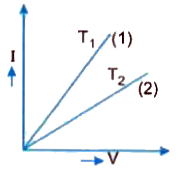What would happen to a reversible reaction at equilibrium, when
a. The temperature is raised, given that its ΔH is positive.
b. The temperature is lowered, given that its ΔH is positive.
c. The temperature is lowered, given that its ΔH is negative.
The prssure is lowered, given that Δn is negative.
e. The pressure is incteased, given Δn is negative.
a. More of the products will be formed.
b. Less of the products will be formed.
c. More of the products will be formed.
d. Less of the products will be formed.
e. More of the products will be formed.
Topper's Solved these Questions
- CHEMICAL EQUILIBRIUMBook:CENGAGE CHEMISTRYChapter:CHEMICAL EQUILIBRIUMExercise:Concept Applicationexercise 7.1
Explore 53 Videos
- CHEMICAL EQUILIBRIUMBook:CENGAGE CHEMISTRYChapter:CHEMICAL EQUILIBRIUMExercise:Ex 7.2
Explore 40 Videos
- CHEMICAL BONDING AND MOLECULAR STRUCTUREBook:CENGAGE CHEMISTRYChapter:CHEMICAL BONDING AND MOLECULAR STRUCTUREExercise:Archives Subjective
Explore 15 Videos
- CLASSIFICATION AND NOMENCLATURE OF ORGANIC COMPOUNDSBook:CENGAGE CHEMISTRYChapter:CLASSIFICATION AND NOMENCLATURE OF ORGANIC COMPOUNDSExercise:Analytical and Descriptive Type
Explore 3 Videos
Similar Questions
I-V graph for a given metallic wire at two temperatures T1 and T2 is as shown in Fig. Which of the two temperatures is lower and why?

View SolutionFor a particular reversible reaction at temperature T, ΔH and ΔS were found to be both +ve. If Te is the temperature at equilibrium, the reaction would be spontaneous when
View Solution
Knowledge Check
The equilibrium constant in a reversible reaction at given temperature
ADepends on the initial concentration of the reactantsBDepends on the concentration of the products at equilibriumCDoes not depend on the initial concetrationsDIt is not characteristic of the reactionThe equilibrium constant in a reversible reaction at a given temperature which
ADepends on initial concentration, of the reactants.BDepends on the concentration of the products at equilibrium.CDoes not depend on the initial concentration.DIt is not characteristic of the reactionThe raise in the temperature of a given mass of an ideal gas at constant pressure and at temperature 27∘ to double its volume is
A327∘CB54∘CC300∘CD600∘C
For a given reversible reaction at a fixed temperature, equilibrium constants Kp and Kc are related by ………
View SolutionFor a particular reversible reaction at temperature T, ΔHandΔS were found to be both +ve. If Te is the temperature at equilibrium, the reaction would be spontaneous when
View SolutionFor a particular reversible reaction at temperature T,ΔHandΔS were found to be +ve. If Te is the temperature at equilibrium, the reaction would be spontaneous when
View SolutionFor a particular reversible reaction at temperature T, ΔHandΔS were found to be both +ve. If Te is the temperature at equilibrium, the reaction would be spontaneous when
View SolutionHeat given to a body which raises its temperature by 1∘C is
View Solution

